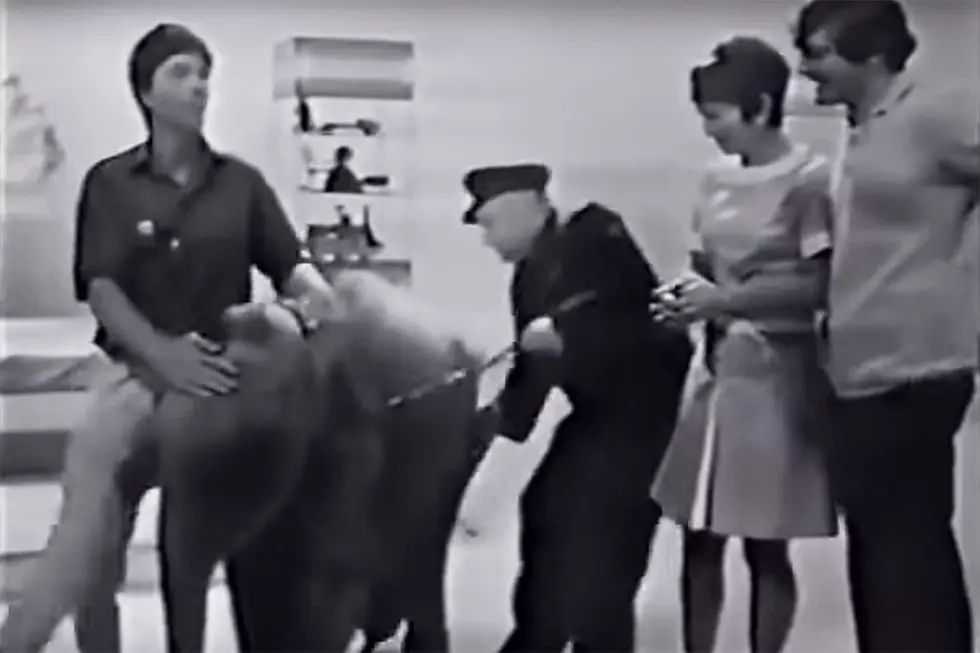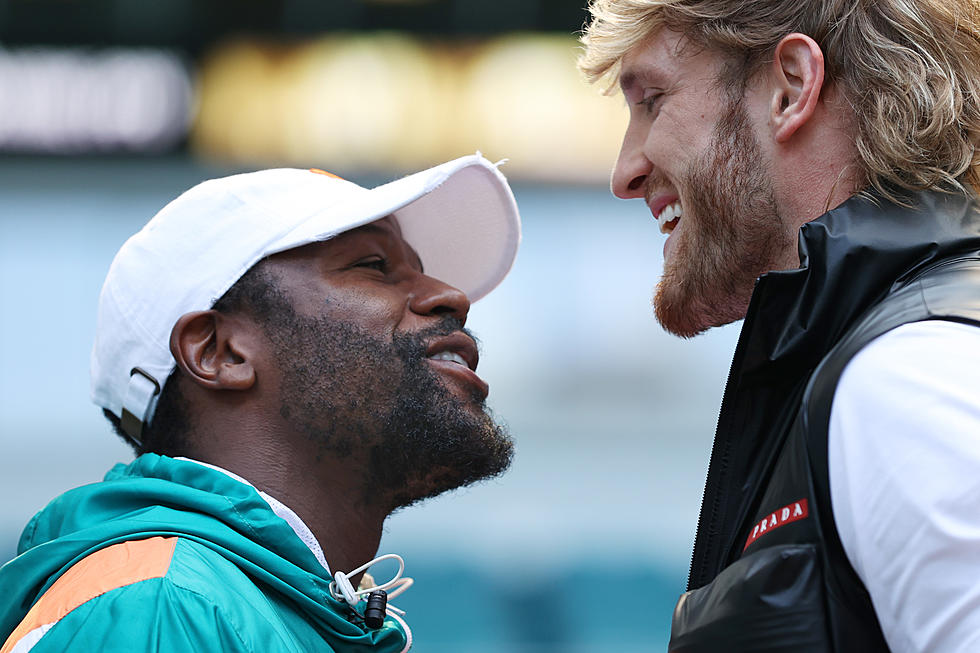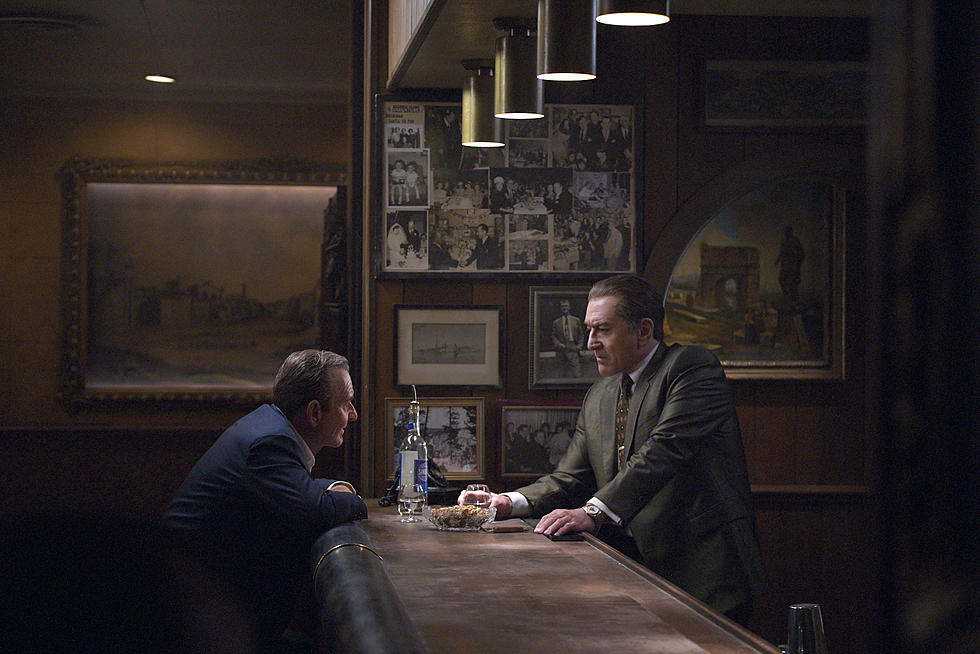
50 Years Ago: A Baby Elephant Brings British TV to a Standstill
It’s often said that the British Broadcasting Corporation is a national institution, and there’s no doubt the U.K.’s public service broadcaster has contributed a huge amount to the country’s culture and image around the world. But like most institutions, resplendent in a Way of Doing Things that’s not necessarily going to be explained to anyone, there’s a downside.
The BBC’s downside is that it often represents an idea of Britishness that only a minority of people in Britain actually recognize. And so it has been for many years in the studio of Blue Peter, the longest-running children’s television show in the world.
During the post-war years, the magazine show stood up for the stiff-upper-lip, make-do-and-mend, very-well-alone Britishness that certain people – personified by larger incomes than the rest of the country – liked to associate with. From its earliest years, Blue Peter sought to educate, entertain and inform in the way the future leaders of the country would like to be educated, entertained and informed.
Presenters would show viewers how to make things (“And when you’re finished, it should look like this … ”) or explore exciting new museums, explain how to look after pets, bury time capsules, build gardens, visit exotic parts of the world and introduce exciting technological developments. It was all delivered with a “leading citizen of the world” viewpoint. And because it was the BBC (often known as “Aunty Beeb”), the vast majority of the country watched and double-thought its way through the show. When kids watching in partly demolished streets that still featured '40s bomb craters and outside toilets, the fact that someone on TV was showing them how to make a sun hat for their pet pony was all but ignored. That’s the way it was.
So when, in 1969, a baby elephant pissed and shat all over Blue Peter, the majority of viewers looked right through the class-war statement the animal was making. It was always funny in a “never work with children or animals” perspective. But in the punk era and afterward, it began to represent the suggestion that civilization was for the rest of us, whether we owned pet ponies or not.
Watch Lulu the Elephant's Big Moment on 'Blue Peter'
The trio of presenters usually regarded as the classic lineup was there that day. Preparing for a trip to Ceylon (later renamed Sri Lanka as the nation loosened itself from the bonds of the fading British Empire), Valerie Singleton explained to viewers that elephants in the country didn’t have tusks. To prove it, the young Lulu, complete with zookeeper Mr. Smith, was brought onscreen.
Presented with a bucket of water, Lulu took a sip and then began making a mess on the polished studio floor. As John Noakes tried to stick to the script, discussing how the Blue Peter pets were going on holiday too, Lulu stood on his foot, pushed him off camera then headed behind the scenes herself.
She soon returned, dragging Smith through her mess, as Singleton, Noakes and Peter Purves backed away and laughed before trying to get the show back on track, and rapidly rearranged cameras attempted to crop out the elephant mess. Take that, faceless corporate entities.
Blue Peter was essentially the brainchild of Biddy Baxter, an incredibly British grand dame in the vein of Downton Abbey’s Dowager Countess of Grantham (played by Maggie Smith). Baxter helped develop the children’s show format before becoming editor in 1965, remaining for more than a quarter of a century. She created the famous Blue Peter badge, awarded to children and adults in recognition of Great British achievements. She made sure children who wrote into the show received personal replies rather than form letters. She also ran broadcasts with a rod of iron, developing a reputation as an unpleasant, ferocious and overbearing mistress. She later admitted that she forbade Smith from using his own rod of iron to look after Lulu.
“Lulu was a baby elephant of enormous strength and Smithy, her keeper, was a tiny, rotund gentleman,” she recalled in 2014. “He came with this horrendous stick with a sharp metal spike like a spear and I said, ’I am terribly sorry, Mr. Smith, but you can’t have that, you will have to put it away.’” (Potential translation: “As a representative of the BBC, the institution and the establishment, I know more about elephant-keeping than you, a mere elephant keeper.”)
“It all went pear-shaped because they gave her water," Baxter noted. "First of all, she urinated, which melted the floor paint and made it like an ice rink, and on top of that she defecated, and Smithy was so upset.”
Watching a young elephant run riot on a TV set is just funny on its own, but for those who were brought up with Blue Peter presenting them with a way of life they could never achieve, it came to represent something else entirely. In a United Kingdom that, for more than a half-century now, has publicly struggled with its own sense of identity, it’s funny again for those more political reasons. Are you listening, The Establishment? Some of you can own pet ponies, but you’ll never control a shitting baby elephant.
The Best Rock Movie From Every Year
More From KLUB Tejano 106.9










